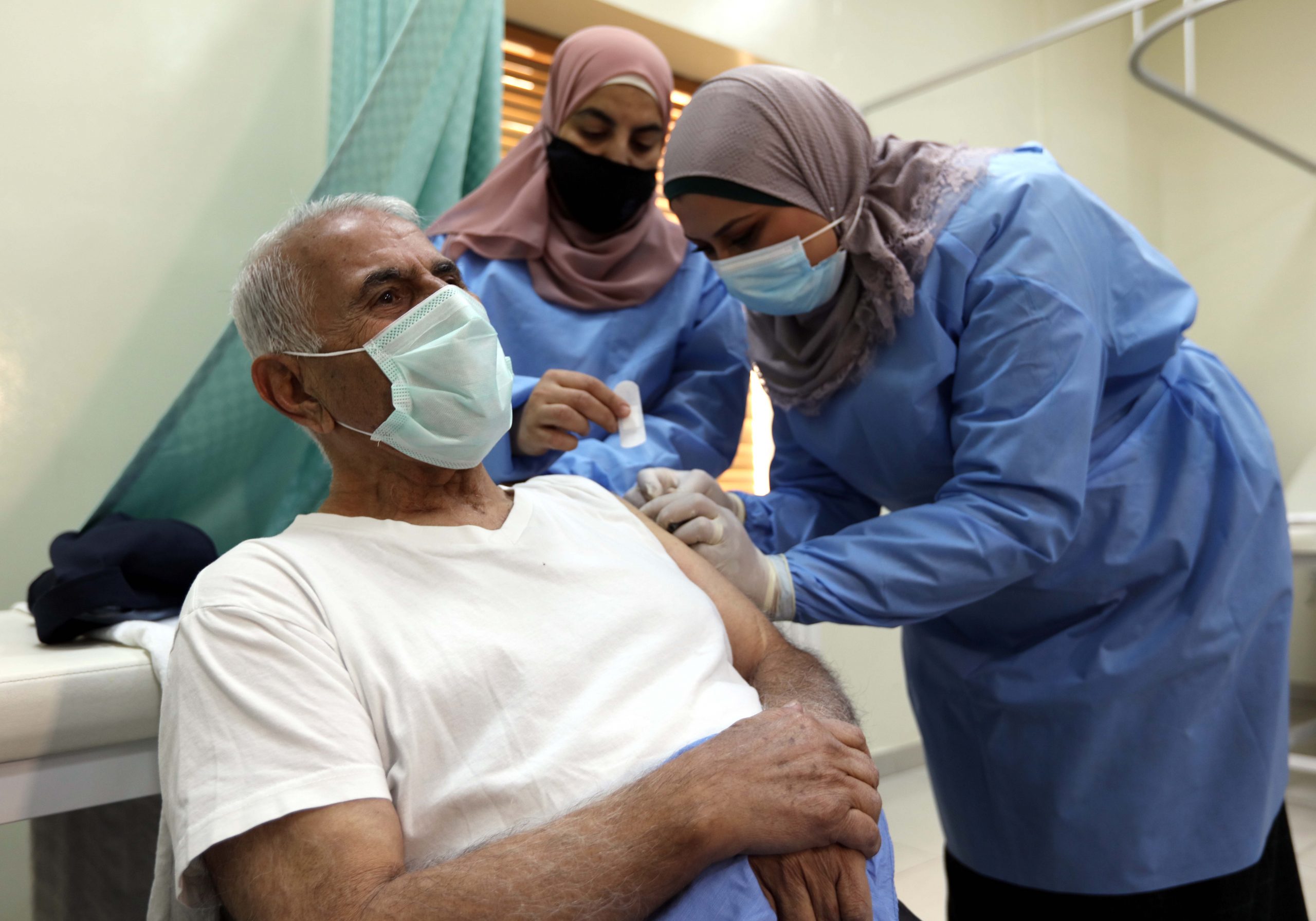Syrian refugees in Jordan and Lebanon and much of the population of Syria have been seriously affected by the COVID-19 pandemic. Their living conditions have deteriorated drastically because of the disruption caused by the pandemic, and access to healthcare and especially vaccines has been limited. It is therefore crucial that the world community focus on assisting in delivering vaccines in these areas. The Novo Nordisk Foundation has now awarded grants to UNICEF Denmark, the Danish Red Cross and the World Diabetes Foundation – organizations that are working to improve the conditions for refugees and other vulnerable groups in Jordan, Lebanon and Syria.
“Ensuring that refugees in vulnerable areas can also be vaccinated against COVID-19 is incredibly important. A joint effort is needed to suppress the pandemic, mainly to help the people who are at risk but also in a global perspective. This is why I am also pleased that we are contributing to this goal with these three projects, especially through the work that COVAX and other excellent organizations have set in motion,” says Hanna Line Jakobsen, Senior Vice President, Social & Humanitarian, Novo Nordisk Foundation.
The grant to UNICEF Denmark is part of COVAX,[1] which aims to build the infrastructure that prepares recipient countries for rolling out vaccine programmes. In addition, UNICEF Denmark also supports the roll-out of diagnostics and treatment in vulnerable areas. COVAX expects to deliver a minimum of 2 billion vaccine doses in 92 countries. Rolling out a programme of this size is logistically demanding, and UNICEF is one of the few organizations in the world with the experience to handle a task on this scale. The UNICEF Supply Division and humanitarian warehouse in Copenhagen is the epicentre for the world’s largest vaccine warehousing and distribution programme, and the experience from this will be used in the project.
The grant to the Danish Red Cross underpins the national vaccine programmes, with Lebanon and Syria both on COVAX’s list of vaccine recipients. The initiative of the Danish Red Cross will help to mobilize the local population to agree to be vaccinated. The organization will also help to ensure that correct information about the vaccines reaches even sparsely populated areas. The initiative will focus on communication efforts in Lebanon and Syria to avoid misinformation about the effects and side-effects of the vaccines in connection with the vaccination programmes. The project will also help to register people with special needs and deliver the vaccines in convoys to areas affected by conflict in Syria.
The grant to the World Diabetes Foundation will contribute to ensuring that people at high risk of illness and death as a result of COVID-19 are vaccinated. The support provided will thus be part of the vaccination programme of the Government of Jordan. The project has a special focus on people with a noncommunicable disease among both refugees and other vulnerable groups in the local communities. Jordan has one of the world’s highest proportions of refugees by population and was one of the first countries to vaccinate refugees. The project will therefore support the purchase, registration and administration of the vaccines as part of the ongoing efforts of the Government of Jordan.
Leif Fenger Jensen, Managing Director, World Diabetes Foundation, says: “People with a noncommunicable disease have an especially high risk of a life-threatening illness trajectory if they develop COVID-19. This is especially true for refugees and other vulnerable population groups in conflict-affected areas, in which obtaining access to treatment can often be difficult. The Novo Nordisk Foundation’s support is therefore absolutely crucial for the World Diabetes Foundation in being able to reach more of these especially vulnerable people and communities. We look forward to offering Jordanian society additional support through the vaccination programme and thus helping even more in relation to combatting COVID-19.”
Jakob Harbo, Head of Partnership & Compliance, Danish Red Cross, says: “In vulnerable and conflict-affected areas, we see a critical need to supplement the efforts of health professionals with targeted information to persuade refugees and the local population to decide to be vaccinated. We have extensive experience with these types of communication campaigns and are therefore also extremely pleased to receive the grant from the Novo Nordisk Foundation, which will help as many people as possible get the information they need.”
Karen Hækkerup, Executive Director, UNICEF Denmark, says: “COVAX, which aims to ensure that vaccines are purchased, delivered and rolled out in up to 92 countries and to more than 1 billion people, is an unparalleled historic task. UNICEF Denmark, on behalf of COVAX, has already entered into agreements with vaccine manufacturers. The grant from the Novo Nordisk Foundation will help us to prepare the countries for rolling out vaccination with all that this entails in terms of infrastructure, information and expertise. This hugely important project is already in full swing and is going to make an enormous difference in each of the countries.”
The Foundation allocated the total grant of DKK 20.5 million as follows: Danish Red Cross (DKK 6 million); World Diabetes Foundation (DKK 7 million); and UNICEF Denmark (DKK 7.5 million). The Foundation’s grants for vaccines apply solely to WHO-approved vaccines.
Further information
World Diabetes Foundation: Jakob Sloth Madsen, Senior Advisor, +45 3079 2135, [email protected]
Danish Red Cross: Press Office, +45 3529 9699
UNICEF Denmark: Morten Bredal, Partnership Communication Manager, +45 2148 1883, [email protected]
Novo Nordisk Foundation: Christian Mostrup, Senior Programme Lead, +45 3067 4805, [email protected]
[1] COVAX (COVID-19 Vaccines Global Access) is an international alliance for the distribution of vaccines to low- and middle-income countries formed in 2020 by the World Health Organization under Gavi, the Vaccine Alliance.








